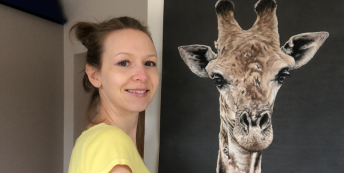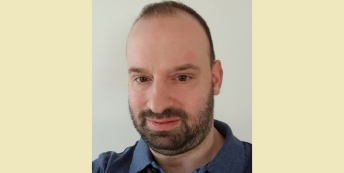“I didn't want to reflect on my life and say that I'd only ever done one thing.”
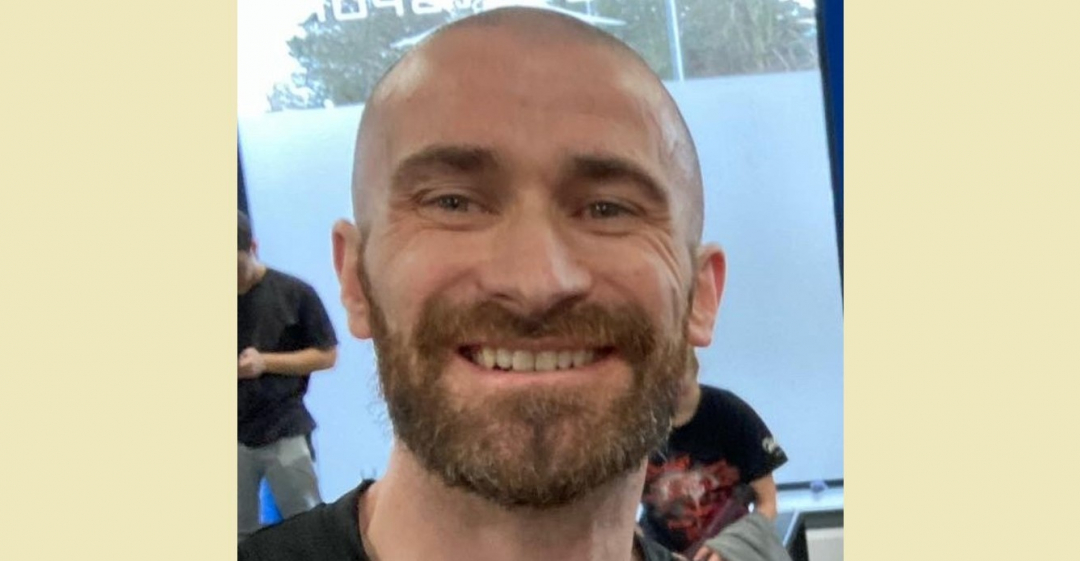
Newly Updated
What work were you doing previously?
I worked in education for 22 years.
I started as a teacher of English and progressed to running English departments in schools. Most recently in 2016 my wife and I decided that we wanted to have a bit of an adventure and moved to Shanghai for six years to work in a couple of international schools.
What are you doing now?
I’m a personal trainer and instructor at the University of St Andrews’ sports department.
I run eleven classes a week, work with 20 personal training clients, and I'm really busy.
How did you feel in your work before you decided to make the change?
I loved what I did, I loved teaching.
I loved the kids that I worked with, and generally loved the staff that I worked with, particularly on the ground level.
There were some unbelievable highlights. I managed to get Simon Armitage to come over and open the school library. Gillian Cross came over from the UK to visit us in Shanghai, so some of the stuff we achieved was fantastic.
But it was dealing with those who were a level above you over months and years that felt like treading water, and not really getting anywhere. I kind of knew that went with the job, and so just got on with it.
Why did you change?
When I hit 40/41, I started thinking 'right, where am I at with my career? Is there anything else I want to do or anything I haven't done yet?’.
It didn't feel like a panic or a rush to change. I just thought that I'd been teaching for 21 years at that point, if I do it for another 21 years until retirement age, it'll be the only thing I'll be able to say I've ever done.
When I thought about it like that, I didn't want it to be that way. I didn't want to reflect on my life and say education was the only thing I'd done.
So for quite a while I considered what the options would potentially be.
I think because it coincided with Covid in China being particularly harsh, the romance I'd had for teaching was kind of waning. Everything had gone online, everything was done via online calls. We weren't in the classroom, we weren't interacting that way.
It didn't make the decision for me, but it helped me make the decision that a career change was likely in the offing.
How did you choose your new career?
All I knew up to that point professionally was teaching and education, so I was really stumped with regards to what I should do as I had no other obvious skills.
But in the background I'd lived a very active lifestyle outside of work, I played gaelic football while we were in Shanghai and also began to look after myself a little bit more.
When Covid hit in China, we couldn’t leave the country and when restrictions started happening, opportunities for hobbies and outlets were also beginning to be restricted.
During that time, I took a lot of hope and satisfaction physically, mentally and emotionally from looking after my health and training in the gym.
So much so that I began to not just do it for the sake of doing it, but also began to understand why I was doing it and educating myself on how to do it effectively. I started developing little programs and patterns for myself, listening to podcasts on the subject and researching.
This started to naturally spread out beyond just doing this for myself. I began to get more involved in coaching with the gaelic football team that I played for, and people began to ask me if I could help them out with their fitness.
We went through a period of complete lockdown in Shanghai in 2022 for 57 days, locked in our apartment, so I began to lead two or three online fitness classes a day. I began to really enjoy what I was doing and could see the value it was bringing to other people.
My wife and I continued to talk and decided that as this was something that was becoming a passion for me, why not look into becoming involved in the fitness industry.
Are you happy with the change?
Yes.
I'm at the stage now where I work four and a half days a week, I leave my work at work, and I can be a dad in a way I hadn't before.
I can go to all my kids' assemblies and performances, I can take them to or from school, my work is semi-flexible so I can chop and change things if things pop up at home.
There have been times I’ve wondered if I made the right decision but overall it's given me a chance to be me again at work, and it's a really good feeling.
I'm really lucky.
What do you miss and what don't you miss?
I miss the interaction with the kids.
I miss seeing them overcome a challenge, that little spark you see when they 'get' something.
Because you're dealing with younger kids and teenagers, there's always randomness about them which can make every day quite different. You can't predict how they'll act or behave.
I was always part of a big department, so there were always a lot of like minded people there to bounce off of.
I miss the holidays, especially as a family man. This was the first year in 22 years that I didn't have the summer holidays off. But you work around it and make the most of the time that you do have.
The things I don't miss?
I was at a point in my career where my next step was to become a Deputy Head or Vice Principal. I'd actually completed a Masters in Education a couple of years ago with the view of taking that step up the ladder.
But one of the things that helped me make the decision to not do that and to make a career change instead was that I looked at a lot of the people who were in the position that I was going to go for, and I didn't like what I saw.
I looked at the people higher up and I don't know if it was the environment, if it was because we were in Asia, I can't put my finger on it but people seemed to get very selfish and forget where they came from. And there seemed to be so many like that that I thought, ‘well I don’t want to become that’.
I did apply for other jobs in education before I became a personal trainer to see if it was that particular school or location, and I was offered jobs in Dubai and the UK, but when it came to saying yes or no, I couldn't say yes.
How did you go about making the shift?
I did my homework, found a few companies and organisations who train fitness professionals, and began to get qualified as a personal trainer.
In theory for the qualification they give you twelve months to qualify. The process involves a tonne of theory and then practical elements. I'd do things like record training sessions with friends or with my wife who was my practice 'client', and send them off to the organisation who'd grade them.
I retrained on top of my teaching job.
I had to do two - three hours a night towards this qualification on top of what I was doing as a teacher. Having made up my mind that it was what I wanted to do, I wasn't going to do a half-baked job. I wanted to do it properly and have a proper learning experience from it.
With my wife and family's support I decided to knuckle down. At times it was exciting, new and fresh, and that enthusiasm kept me going.
But then there were times when it was ridiculously hard, because the anatomy and physiology side of things was like A-level biology. It was like another language. Sometimes things wouldn't sink in.
It doesn't get easier to learn things as you get older, so there were struggles.
But I think because I was a little bit older than your average personal trainer it worked to my advantage, because you have that mentality that if you make mistakes during training you’ll bounce back and learn from it.
It wasn't as easy to be defeated by setbacks as maybe it would have been if I were younger. And thanks to my wife being unbelievably supportive, and my kids, they would drive me forward as they were proud of me for doing it.
One thing led to another and we decided to move back to the UK last summer. Rather than look for jobs in education, I decided to look for jobs in the fitness industry and ended up getting very lucky, landing my job at the University of St Andrews in their sports department.
How did you handle your finances to make your shift possible?
When we lived in Shanghai, when things were good, they were incredible.
The international schools we worked for paid for our rent, we lived in the middle of Shanghai in a beautiful apartment, we earned good money, we had our health and medical paid for, we were living a bit of a dream.
So as a family we had to discuss me stepping away from this well paid job (and it would still be well-paid in the UK if I went for a similar position). I knew I was going to be taking a hit in terms of finances.
There were times in the initial stages of the shift, and every now and then, where you have to make financial choices and go without something as we're not earning as much as we used to.
What was the most difficult thing about changing?
We hadn't been back to the UK in three years because of the pandemic restrictions, so we hadn't seen family in a long time.
When we first came back we went to Ireland for a bit to see my family and then moved to Scotland for me to start work. Three weeks later my mum got diagnosed with a brain tumor and 12 weeks later she died.
This was about three-quarters of the way through me getting my qualification, and I just froze. I couldn't focus.
During the time she was sick I had to travel back and forth between Ireland and Scotland regularly to be there. I was there to hold her hand as she passed away, and that properly knocked me.
One of the reasons we'd moved back to the UK was to spend more time with family, and we'd spent the summer before the move chatting to them about what we'd do.
We had visions of my parents coming over and having walks on the beach every few weeks, seeing their grandkids that they hadn't seen for three years.
So mum passing really took the wind out of my sails and challenged me more than anything. It was very very hard to take.
I felt (and still do feel) guilt around whether I should have ever moved the family to Asia, should I have come back and forth more often while we were out there. You just question everything.
So I couldn't focus on my studies, and couldn't study at the level I wanted to because I wanted to get good grades.
Thankfully the training company and the tutors I was working with were very understanding and extended things for me. They put my course on hold.
The university I was working for were super supportive. All the support reignited my spark for believing in people, seeing how good people can be when you need them.
The cool thing was that a week or two before mum passed, while she was still pretty clear and able to speak freely, she was very determined for me to do what I was doing and she was proud of me.
When I got myself together I hung onto that, continued with my training, got my qualification and when I got it I broke down, thinking about what she would think of that. So to do what I'm doing now and be as busy as I am now in a good way, I think she'd be really pleased with how it's turned out.
What have you learnt in the process? 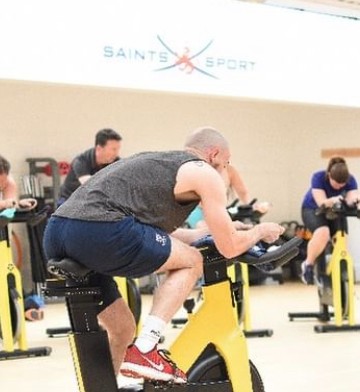
I’ve learnt loads.
Money isn't everything. You need it, but you can cope and survive on less with a bit of logic and sense.
If you're lucky enough to have a supportive family then you've got most everything you need to take on challenges. Nothing really worries me now as long as I know I've got the backing of my wife and kids.
I’ve learnt a lot about myself. I'm proud of the fact that my kids have seen me make a change. They've seen me struggle, they've seen me cry, but they've seen me come back from it. I think you just want to be a good role model to your kids and I think I've done them a decent service there.
I’ve learnt that the effort is worth it. Career change can be one of the most frightening things to consider doing. Choosing to marry and have kids is easy because if you know it's right then you're flying.
But when it comes to things like career which can influence so much how you live your life, how you survive, what you can and can't do, it's a massive deal.
It was a process that probably took a year / a year and a half to consider before going ahead with. It was informed, it wasn't knee-jerk. I think by having spent that time being open with myself and my family, the right decision was come to in the right way.
And now I've done this I'm thinking ‘well what else can I do?’, maybe in a year or two's time.
Once you've gone through the process and overcome those hurdles, there’s nothing stopping you.
What would you advise others to do in the same situation?
Take the time to properly make sure you’re not making a big change as a reaction to something.
Everyone has bad days or spells in what they do. You don't want to do something you'll regret so make sure the change is an informed decision.
Know what you're getting yourself into, and know what you're coming out of, as well. If you know you'll likely have to take a big pay cut, make sure you can afford to do that if you have a mortgage to pay and mouths to feed.
If there's any opportunity to get a bit of shadowing or experience in the new sector do it. Be prepared to give up your free time to work on your shift too.
And if you believe (even just a little bit) that it's possible,that it could be worthwhile, absolutely go for it. You won't regret it.
I'd recommend it to anybody.
We caught up with James recently to see how his shift was working out, roughly a year and a half on. Here's what he's been up to, and the biggest lessons he's learned.
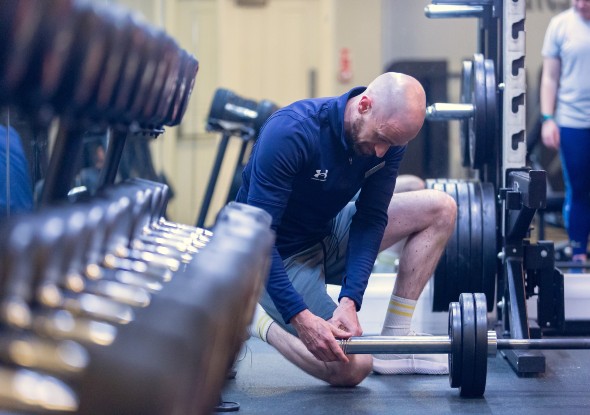
What's changed for you in your career since we first published your story?
Having started in the fitness sector as part of a Health and Fitness team in a University Sports centre, I now lead a team of Health and Fitness instructors and manage fitness and well-being for a large hotel brand.
Within my managerial role, I plan, schedule and co-ordinate over 40 classes per week for local members and guests, I conduct personal training sessions throughout the week, and I organise events and occasions around a wellness calendar for members and the community.
How do you feel about your work now?
My role has grown significantly since I first changed career, which is exactly what I wanted, having been in a leadership role in education.
I was glad and happy to be working in the fitness industry, but felt that I needed more responsibility and that I had more to offer. So I took a risk in moving across to fitness within the hospitality industry – a position I would never have even know was possible to apply for.
I’m super busy, I have responsibility, I love the environment I’m in, and there’s potential to continue to change and influence what we as a team offer in this space.
I can say I’m very happy with my work now.
What challenges have you come up against since making your shift, and how exactly have you dealt with them?
The biggest challenges I have faced have come in two distinct places.
One is the demographic of people I deal with changing from a younger and more open-minded group, to a membership group who have high expectations and weren’t initially too keen on the idea of change.
The other challenge came from myself and balancing work / life. I was keen to impress and sometimes did (and still do) too many hours in a week.
I’ve been learning to look after myself in that way and do my best to make a little bit more time ‘me’ and the things I like to, to work hard to put the phone and emails down once the working day has done.
I could still be better but I’m still relatively green in this industry so I’m willing to forgive myself, as long as I keep trying with it.
How is the financial side of things panning out, and is this what you'd expected?
Financially I always knew that at the start of this journey I would be at the bottom of a ladder looking up.
I knew that things would be tough in the first instance but that I needed to keep faith in myself and my abilities more than anything. I took a £24,000 (US$29,000) cut in salary when I changed from education… that was huge.
However, now my role is managerial, and my personal training enables me to make money for myself and the hotel. Things are much more balanced, and it was worth the effort.
What have you learned, since making your shift?
I’ve learnt that I can have faith in myself.
It took a lot of thought and effort, patience and emotion to change career in the first place. Having done that and gone through the rollercoaster that that was, I realised that there is nothing to really (I mean really) be afraid of.
I wasn’t ‘stuck’ in education. I’d just been there for a long time. The idea of change was worrying, but it all worked out well in the end.
You can find out more about James' work and connect with him at @ptjamesfitness
What lessons could you take from James' story to use in your own career change? Let us know in the comments below.

